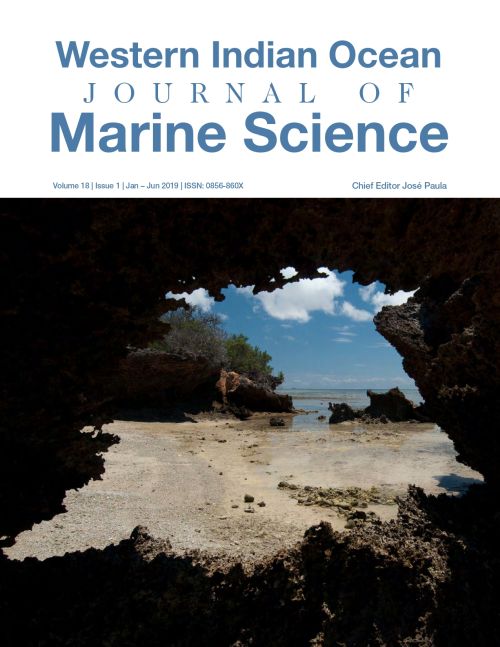 Western Indian Ocean Journal of Marine Science
Western Indian Ocean Journal of Marine Science
Journal / Western Indian Ocean Journal of Marine Science /
Vol. 18 No. 1 (2019) / Articles
This study was conducted to explore the governance processes and socio-economic factors relevant to the potential implementation of bycatch mitigation for various vulnerable marine megafauna (rays, sharks, marine mammals and turtles) in Zanzibar, Tanzania. Questionnaire-based interviews were conducted between February and April 2017 with fishers (n= 240) at eight landing sites. One focus group discussion was held in each site and eleven key informant interviews were carried out. The study showed that current measures to manage bycatch rates are not explicit; no rules govern rays and sharks bycatch; and rules regarding marine mammal and sea turtle bycatch are poorly enforced. Binary logistic regression was used to determine the effect of five selected socio-economic factors (education, age, proportional fishing income, fishing experience, and the number of adults who bring income into the household) on the willingness of fishers to participate in potential future bycatch mitigation measures for marine megafauna. The results indicate that only one factor (the number of adults who bring income into the household) had any significant effect (p=0.016). These findings could benefit the future governance and management of marine megafauna in Zanzibar through a better understanding of what mitigation measures are more likely to be supported.
Journal Identifiers
eISSN: 2683-6416
print ISSN: 0856-860X






